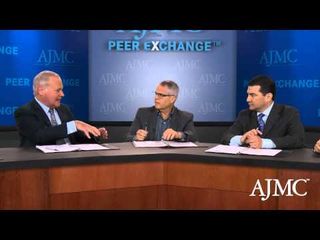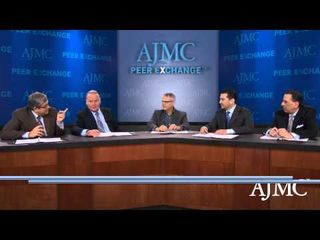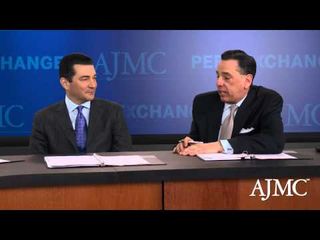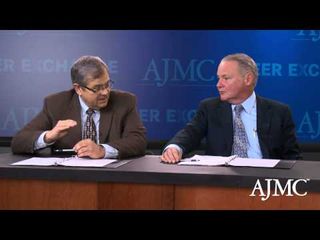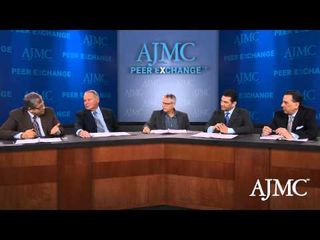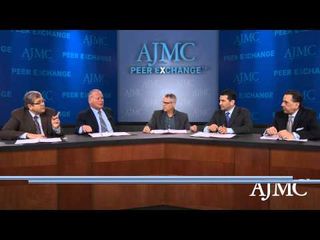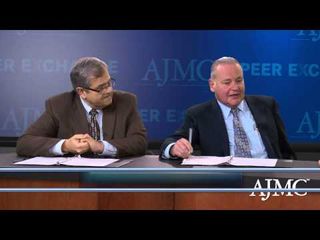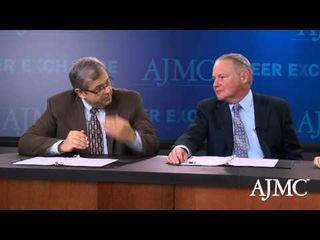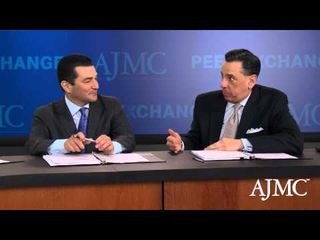
Oncology
Latest News
Latest Videos

More News

NICE rejects promising oncology agents once again, citing high drug cost.

Several new FDA approvals and research advances in oncology have the potential for improved outcomes among cancer patients.

Updates on screening age recommendations for mammograms, CDC report on a decline in smoking rates in the country, and regulation of laboratory-developed tests.

There are 3 potential solutions for reforming the 340B drug pricing program, according to Michael Kolodziej, MD, national medical director of oncology solutions in the Office of the Chief Medical Officer at Aetna.

A retrospective analysis of phase 1 oncology studies that used biopsy-derived pharmacodynamic biomarkers, could not draw a correlation between subsequent drug development and biopsy sample collection.

While cost is an important component of value, it tells only a small part of the cancer care story. By focusing on issues of payment and cost alone, we miss our opportunity to engage cancer care stakeholders in the process of creating a more effective system of care.

This article describes provider networks and benefit design-including deductibles, cost-sharing, and maximum out-of-pocket limits-for oncology care in 2015 health insurance exchanges.

Depending on one's point of view, the 340B prescription drug program keeps safety net hospitals afloat or serves as a profit center at the expensive of community providers. Three leading voices-Rena M. Conti, PhD; Peter B. Bach, MD, MAPP; and Michael Kolodziej, MD; recommend reforms in the new issue of Evidence-Based Oncology, a publication of The American Journal of Managed Care.

The FDA, today, launched precisionFDA, a cloud-based platform that members can utilize to access and share data sets, analysis pipelines, and bioinformatics tools.

At the first annual conference of the Institute for Clinical Immuno-Oncology on October 1, 2015, in Philadelphia, the discussion revolved around integrating immuno-oncology into clinical practice and programs that assist with patient access to these treatments.

Providers and payers came together to discuss challenges and share success stories as they adapt to the changing healthcare realm.

With the rising costs of cancer care, evidence-based tools can help physicians screen patients for financial toxicity.

The advocacy affiliate of the American Cancer Society, the American Cancer Society Cancer Action Network, is working across the country to pass and implement strong oral chemotherapy fairness laws to help ensure cancer patients have access to the recommended course of treatment without added out-of-pocket costs based on how their drug is administered.

Addressing the financial burden of cancer treatment requires efforts at the policy, payer, and clinic level, and implementation of these strategies, in clinical practice, requires commitment from various stakeholders.

Oral chemotherapy ensured improved quality of life for a young, stage 3 pancreatic cancer patient.

A report by STAT has found that a majority of institutions conducting clinical trials fail to report their results to the website ClinicalTrials.gov.

There is, currently, an unmet need in bladder cancer, a disease expected to be responsible for 16,000 deaths in 2015.

What we're reading, December 14, 2015: public health initiatives are underfunded despite being a big return on investment; the FDA repeatedly approved the cancer drug Afinitor without proof it extended life; and a nurse may have exposed patients in a maternity wing to tuberculosis.

Stacey W. McCullough, PharmD, senior vice president of pharmacy at Tennessee Oncology, discussed strategies for managing high-cost treatments, the impact of me-too drugs, and how clinical pathways can help physicians make treatment decisions at the point of care.

This week in managed care, an analysis found the penalty for being uninsured will exceed the cost of insurance for most Americans in 2016, thousands met for the annual meeting of the American Society of Hematology, and Horizon Blue Cross Blue Shield's OMNIA plan gets good news and bad news in New Jersey.

Within 3 months of being granted priority review, alectinib (Alecensa) has been approved for patients with advanced ALK-positive non-small cell lung cancer (NSCLC) whose disease has progressed or who cannot tolerate crizotinib

The National Coalition for Cancer Survivorship has submitted comments to CMS, providing feedback on the Merit-Based Incentive Payment System and Alternative Payment Models proposed by CMS as it transitions toward value-based reimbursement.

When considering how to rectify the rising prices of drugs, there are a number of interventions at multiple levels that can work to decrease costs to patients and the price of the drug, explained Yousuf Zafar, MD, MHS, associate professor in the Division of Medical Oncology at Duke Cancer Institute.

Solutions proposed by patient advocates and physicians to control costs provide approaches to valuing new drug/treatments compared with 1 or several prevailing standards of care. Increasingly, however, the debate over cost is transitioning to a debate over value.

Management of high and rising costs in oncology requires a multifaceted approach using both innovative strategies and pragmatic tools. In this article, we discuss several factors that influence the costs of oncology care.
